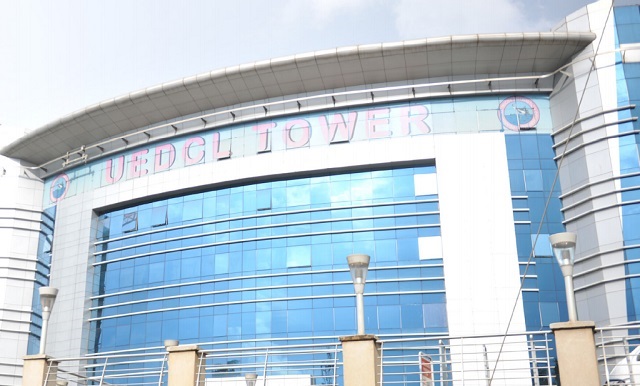
The company distributes power in nine service territories covering 74 districts countrywide
Kampala, Uganda | JULIUS BUSINGE | State-owned Uganda Electricity Distribution Company Limited has reported a 9% increase in revenues to Shs80.1bn for the period ended June 2022 citing an increase in operational efficiency and increased customer connections.
UEDCL Managing Director, Paul Mwesigwa said the company’s operating expenses decreased by 3.8% to Shs60.9bn during the same period under review owed to low pole sales. The low sales by the pole plant business unit resulted into less cost of sales incurred by the pole plant to a tune of Shs6.4bn for the period ended June 2022 compared to Shs10.7bn for June 2021.
The drop in pole sales was mainly attributed to the suspension of the Electricity Connection Project (ECP), the transition of the Rural Electrification Programme (REP) to the Ministry of energy and Mineral Development that led to delays in the signing of new line power construction projects.
The Earnings Before Interest Tax Depreciation and Amortization (EBITDA) increased from Shs10.4bn to Shs19.2bn.
Mwesigwa said UEDCL continues to carry out its operations under a business unit model of the Lease and Assignment Agreement (LAA) monitoring, wooden pole production factory, electricity distribution in the nine territories, project implementation and UEDCL tower management.
He said management has taken vigorous revenue management measures and cost controls by mainly focusing on operational efficiency, customer service excellence and business sustainability as major strategic objectives which has kept UEDCL in good financial health.
Nevertheless, Mwesigwa said, there are several challenges that have remained a hindrance factor to the operations of the company including the limited funds to cater for investment needs required in the distribution network both under the concession areas and the ones operated by UEDCL, a situation that has led to suppressed demand.
The other challenges relate to very long distances of distribution networks at 33kv as a result of the limited 132kv transmission coverage, the increasing number of embedded mini electricity generation plants whose power is currently evacuated through a low voltage network at 33kv, thus leading to huge technical energy losses of 14% for 2022 and network failures due to overloads in some parts of the country, and the non-payment of lease fees for the use of UEDCL assets by Umeme Limited.
The implication of unpaid lease fees, Mwesigwa said has also led to the depletion of the national assets to a net loss before tax of Shs0.085bn (June 2022) and a decrease in the shareholders’ funds from Shs.169.54bn (June 2021) to shs.169.49bn (June 2022).
“Despite the challenges, UEDCL has continued to serve the customers efficiently and effectively,” Mwesigwa said, “We have been committed to monitoring the concessioned network and providing a reliable electricity supply to the service territories by digitalising quite several operations that link UEDCL with the customer, revenue management and logistical support.”
Francis Tumuheirwe, the chairman Board of Directors for UEDCL said, during the period, UEDCL carried on with its roles, including monitoring the Umeme electricity distribution concession to ensure compliance with the lease and assignment agreement, power distribution in nine service territories and running its creosote plant for the supply of treated wooden poles to the national electricity grid.
“I would like to state that the company’s fiscal and operational challenges notwithstanding, UEDCL will continue to perform well under the company’s medium-term strategy,” Tumuheirwe said.
The Minister of Finance Planning and Economic Development, Matia Kasaija urged the company management to work towards making profits to be able to contribute money to the treasury to support government programmes.
Innovation
Meanwhile, during the annual general meeting, Kasaija unveiled the company’s new online monitoring system dubbed ‘SCADA’ which cost Shs3 billion. The system, cleared by Electricity Regulatory Authority, was technically commissioned in December 2022 and company executives say, it is already smoothening company operations.
“The UEDCL remote power monitoring and control project (SCADA) is a project that was designed, supplied, installed, and commissioned for the remote monitoring and controlling of UEDCL operated distribution network auto switchgear at various points on the network,” Mwesigwa said. “We firmly believe it is going to improve power availability in our areas of jurisdiction.” The company currently distributes power in nine service territories covering 74 districts in Uganda.
 The Independent Uganda: You get the Truth we Pay the Price
The Independent Uganda: You get the Truth we Pay the Price





